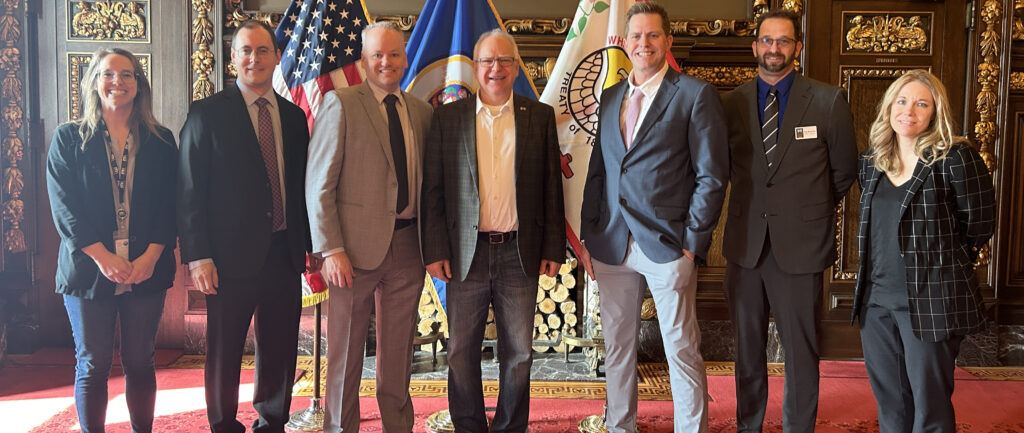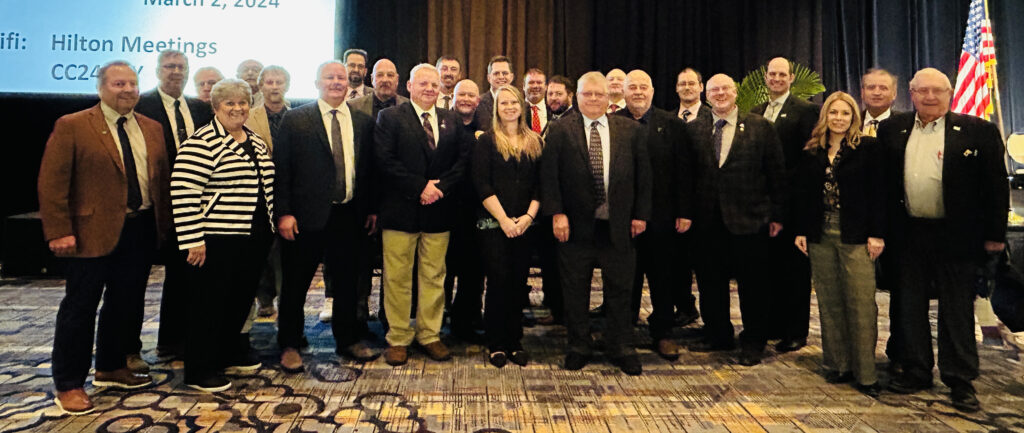In honor of Earth Week 2024, U.S. Department of Agriculture (USDA) Rural Development State Director Colleen Landkamer announced that USDA is funding more than 80 clean energy projects in Minnesota to lower energy bills, expand access to domestic biofuels and create jobs and new market opportunities for U.S. farmers, ranchers and agricultural producers.
“As we celebrate Earth Day this year, we are excited to partner with hundreds more family farms and small businesses to address the impacts of climate change, grow the economy and keep rural communities throughout Minnesota strong and resilient,” State Director Landkamer said.
In all, USDA is providing $12.9 million in funding in Minnesota through the Rural Energy for America Program (REAP) and the Higher Blends Infrastructure Incentive Program (HBIIP). This is part of a total of $238 million in announcements nationwide.
Rural Clean Energy Production
State Director Landkamer announced more than $8 million in grants through REAP to support projects in Minnesota.
The REAP program helps agricultural producers and rural small business owners expand their use of wind, solar, geothermal and small hydropower energy and make energy efficiency improvements. These innovations help them increase their income, grow their businesses, address climate change and lower energy costs for rural Minnesotan families. For example:
· Ross Jaenisch’s farm in Clara City will use a $22,969 grant to install an energy efficient grain dryer. This project is expected to save the farm $3,600 per year and will replace 49,000 kilowatt hours (kWh) of electricity (50 percent of the farm’s annual energy usage) per year, which is enough to power four homes.
· Terry D. Dean’s farm in Cosmos will use a $220,000 grant to install two 25-kilowatt (kW) wind turbines. This project is expected to save the farm nearly $18,200 per year and will replace nearly 190,000 kilowatt hours (kWh) per year, which is enough electricity to power 18 homes.
· Steven Caulkins’ farm in Hector will use a $88,625 grant to install a 50 kilowatt (kW) solar array. This project is expected to save the farm $8,600 per year and will replace 66,000 kilowatt hours (kWh) of electricity per year, which is enough to power six homes.
· Paul D. Erickson’s farm in Olivia will use a $312,660 grant to install an energy efficient grain dryer. This project is expected to save the farm $6,300 per year and replace 80,000 kilowatt hours (kWh) of electricity (100 percent of the farm’s annual energy consumption), which is enough to power seven homes.
USDA continues to accept REAP applications and will hold funding competitions quarterly through Sept. 30, 2024. The funding includes a dedicated portion for underutilized renewable energy technologies. For additional information, contact a local energy coordinator.
Cleaner and More Affordable Fueling Options
USDA is also awarding more than $4.9 million in grants through HBIIP to business owners in Minnesota to increase the availability of domestic biofuels, giving rural residents cleaner, more affordable fuel options.
HBIIP provides grants to fueling station and distribution facility owners, including marine, rail, and home heating oil facilities, to help expand access to domestic biofuels, a clean and affordable source of energy. These investments help business owners install and upgrade infrastructure such as fuel pumps, dispensers and storage tanks. For example:
· Pete’s Surplus Inc. in New London will use a $417,750 grant to install two E85 dispensers, one B20 dispenser, and one biodiesel storage tank at its fueling station. The project is expected to increase the amount of biofuel sold by 35,000 gallons per year.
· Fuel Express Inc. in Starbuck and Glenwood will use a $741,000 grant to install four E85 dispensers, four B20 dispensers, one ethanol storage tank, and two biodiesel storage tanks at its two fueling stations. This project is expected to increase the amount of biofuel sold by 165,000 gallons per year.
· Morris Co-op Association in Morris will use a $575,250 grant to install three E85 dispensers, two B20 dispensers, two ethanol storage tanks, and one biodiesel storage tank at its fueling station. This project is expected to increase the amount of biofuel sold by 110,000 gallons per year.
USDA continues to accept applications for funding to expand access to domestic biofuels. These grants will support the infrastructure needed to reduce out-of-pocket costs for transportation fueling and distribution facilities to install and upgrade biofuel-related infrastructure such as pumps, dispensers and storage tanks. Applications are being accepted quarterly through Sept. 30, 2024.
USDA Rural Development provides loans and grants to help expand economic opportunities, create jobs and improve the quality of life for millions of Americans in rural areas. This assistance supports infrastructure improvements; business development; housing; community facilities such as schools, public safety and health care; and high-speed internet access in rural, tribal and high-poverty areas. Visit the Rural Data Gateway to learn how and where these investments are impacting rural America. To subscribe to USDA Rural Development updates, visit the GovDelivery Subscriber Page.




